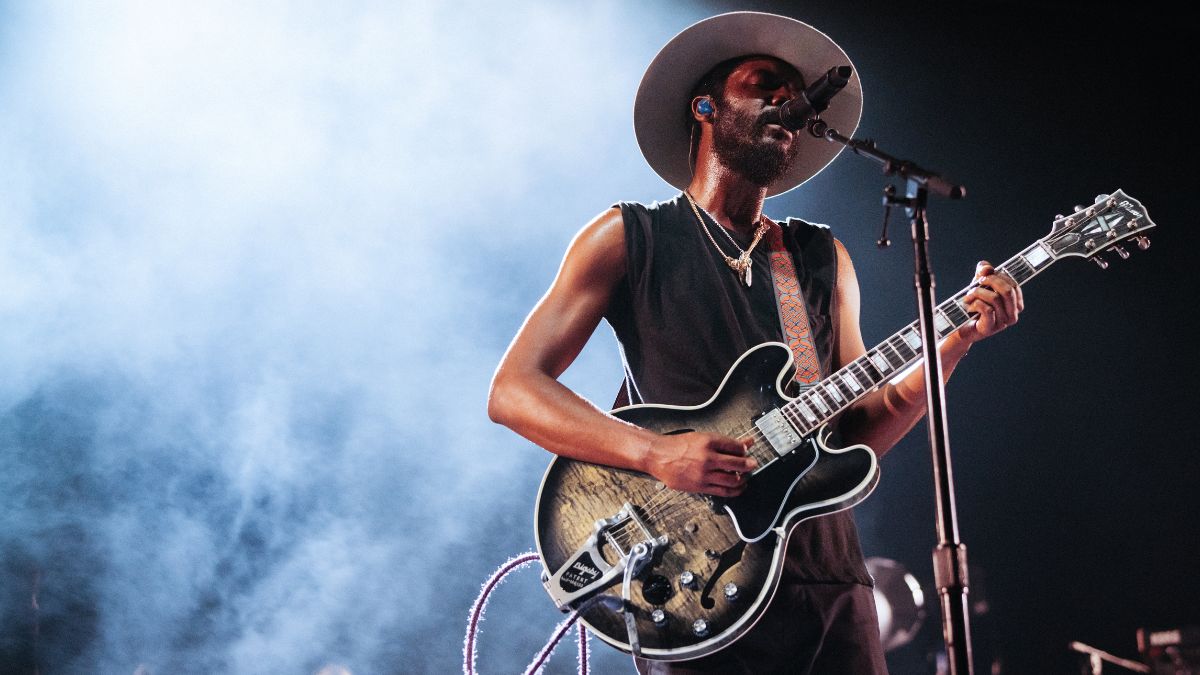Paul Gilbert names 12 guitarists who shaped his sound
The Mr. Big guitar hero reveals how his strap length influenced his technique, why hearing Yngwie Malmsteen down the phone inspired him to give fast picking one more try, and what he considers to be "one of the biggest scourges" of modern guitar playing

All the latest guitar news, interviews, lessons, reviews, deals and more, direct to your inbox!
You are now subscribed
Your newsletter sign-up was successful
Few players scour the innards of their musical soul in quite the same way Paul Gilbert does.
Be it his shredding heroics with early band Racer X, or his uber-melodic musings with the world-dominating supergroup Mr. Big, one thing is sure – Gilbert's heart, mind, and genius are poured over every inch of his Ibanez's fretboard.
Gilbert's ever-wandering solo career, though, has manifested perhaps his most idiosyncratic licks. Since striking out on his own in 1998, Gilbert has touched on blues, fusion, metal, holiday music, and, most recently, Dio. Indeed, Gilbert is the type of player who, when you hear him, you know it. All it takes is one slick note emanating from his empowered fingers, and to be sure, you won't mistake him for another guitarist.
These days, Gilbert is as busy as ever. Of late, he's been promoting The Dio Album, which finds the mad scientist covering some of the late metal legend's biggest tunes. Beyond that, fans have surely seen their newsfeeds buzzing with news of Mr. Big's imminent reunion in the form of a massive farewell tour to celebrate fallen drummer Pat Torpey.
Yet within the heart of the man is a dynamic player who loves to create. Gilbert's means of creation is the humble electric guitar, and on it, he's created a whole hell of a lot.
Unsurprisingly, magicians such as Gilbert have many six-string influences, from all over the musical spectrum. Gilbert dialed in with Guitar World to recount 12 of those guitarists, each of whom helped shape his unmistakable sound.
1. Jimmy Page
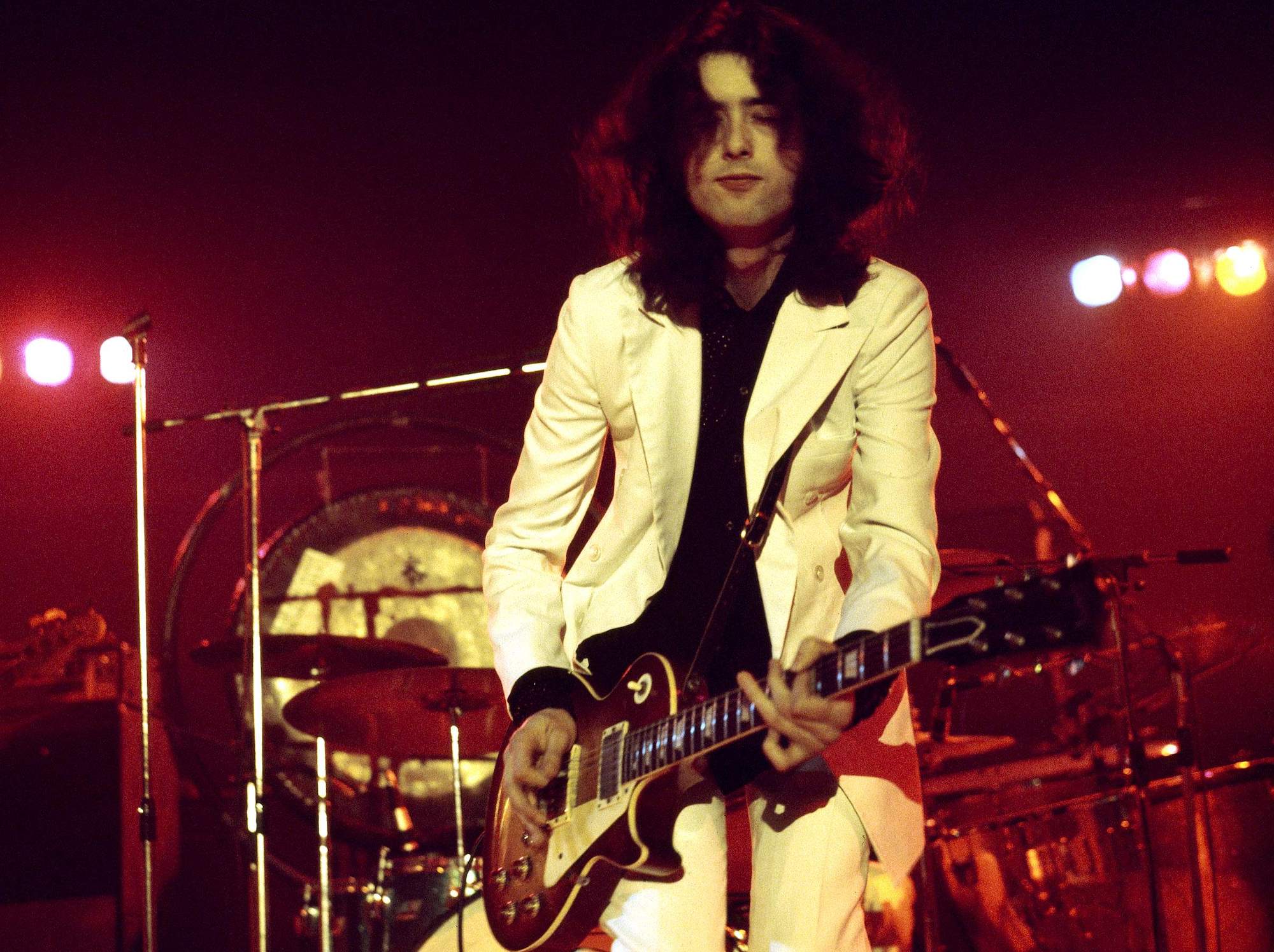
"When I was a teenager, Jimmy Page was not only my hero in terms of guitar sound but in terms of what a guitar player should look like. I used to wear my Les Paul super-low, almost hanging down to my knees, and I think that really influenced my wrist position and grip. All of that came from me trying to copy Jimmy. Probably the best day of my whole guitar-associated life was when I figured out that little bending lick in Heartbreaker.
All the latest guitar news, interviews, lessons, reviews, deals and more, direct to your inbox!
"To be able to get that bend in that pull-off and then hop to the next string in just the right way… that was the first time where I thought to myself, 'Oh, man – that sounds just like the record.' To me, the bending and the vibrato were like the fingerprint or like the business card of being a cool guitar player. If you had that vibrato together, you had it all, which was something that Jimmy planted in my ears."
2. Frank Marino
"The first time I saw Frank Marino was on the simulcast of California Jam II. When he came out, he was just on fire, playing a million miles an hour while doing a cover of Jimi Hendrix's Purple Haze. It was like a supercharged version, and it was just incredible. Plus, Frank has this warbly guitar sound – it sounded like he had five pedals on at the same time, all making the super-psychedelic guitar tones.
"After that, I got the Mahogany Rush live album [Frank Marino & Mahogany Rush – Live], in which, again, he did a cover of Chuck Berry's Johnny B. Goode, and his rendition was just on fire with ripping fast guitar. But it was really controlled and not messy, and it featured that warbly tone that I loved.
"I don't know which pedal he used, but it got me interested in pedals just the same. Because I knew there was something going on that was beyond a guitar plugged straight into the amp. But it's funny because I've never been a person that did drugs, but Frank gave me what I imagined would be the feeling you'd get from that where the whole world seems to be swimming."
3. Eddie Van Halen
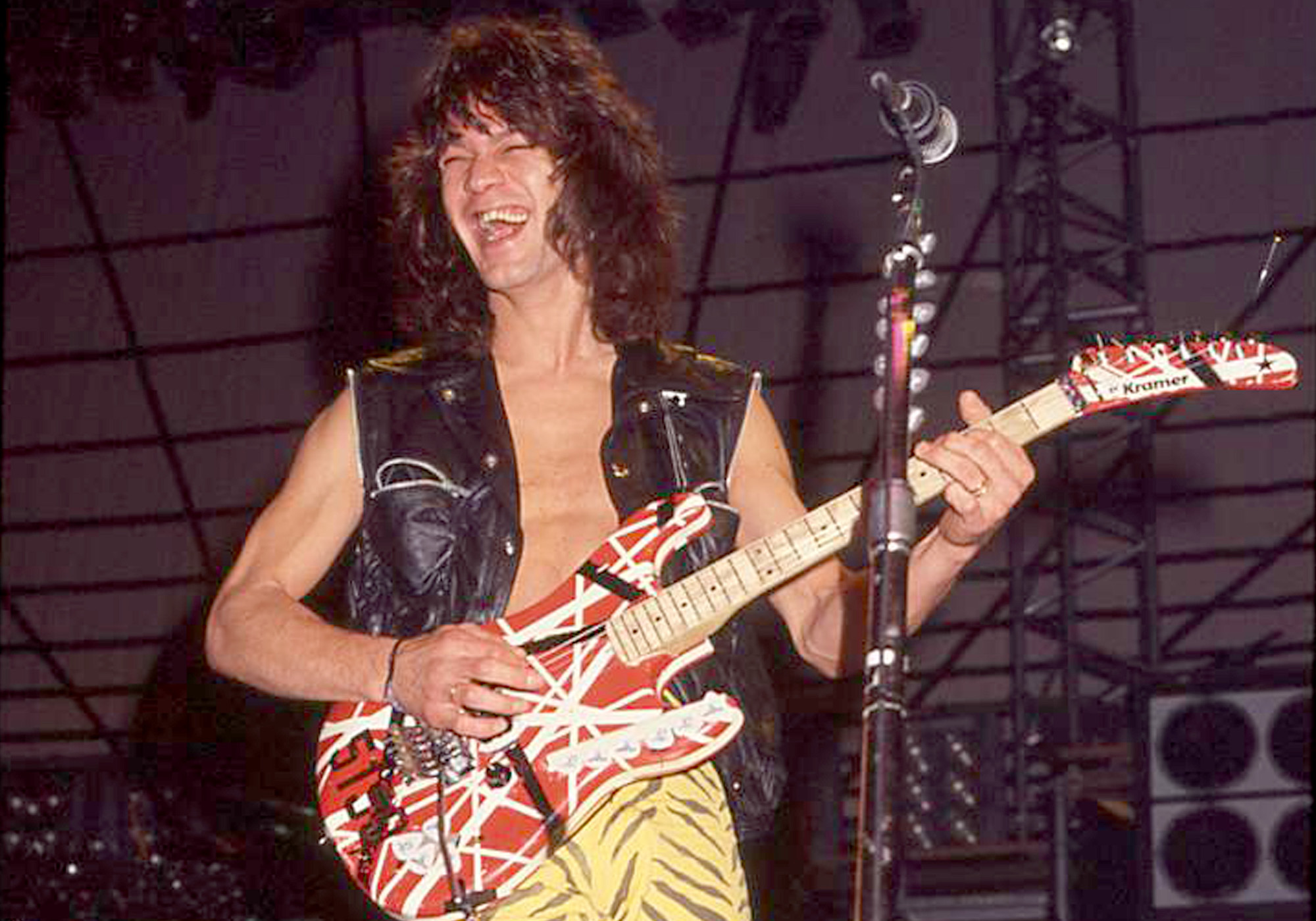
"Anybody who plays guitar and is around my age has got to have Eddie's name on their list, right? I mean, when Eddie came out, it was otherworldly. But beyond that, it was just the sound of Van Halen as a whole band that was very different from what was going on at the time.
"Other arena rock acts like Kiss, Cheap Trick, Ted Nugent, and Aerosmith would be produced and cleaned up, and while that was nice, the cleaning up of their sound sucked the energy out of the music. But Van Halen sounded like their live show – it wasn't too careful-sounding. They had this energy when they came on the radio, and their music stood out so much from everything else. And then, of course, you get down to what Eddie was playing on guitar, which was totally different.
"I liken hearing his version of You Really Got Me to him taking a charming picture of a dinosaur and then turning it into a da Vinci painting. I heard him play – it's like, 'Okay, the adult has entered the room.' Eddie was just in total command of his instrument. There were no rough edges, and everything was played with intention. His level of virtuosity was like what you'd hear from a great violinist or a classical piano player. He had that level of control with his guitar playing."
4. Jimi Kidd
"So, Jimi was my uncle, and unfortunately, he didn't do a lot of recording. But I grew up listening to him because he's a member of the family, and naturally, he influenced me. He used to send me cassette tapes recorded off the soundboard from the road.
"When he'd do a gig, he'd have the sound engineer record with a cassette and send it to me, and I listened to those as much as I did Van Halen or Frank Marino. So, that was really a big part of what trained my ear because Jimi had great vibrato, phrasing, cool, fast licks, and a great tone.
"Later on, I brought him out to my studio, and we did a blues record together called Raw Blues Power. I'm glad people got to hear Jimi play there, because aside from those cassettes that he sent me there wasn't a lot out there.
"I also have to say that Jimi was a great recommender of music. He'd always tell me the albums I needed to buy, be it Hendrix, MC5, Iggy and the Stooges – he got me into a lot of music. So, Jimi was a great music educator, not only through his playing but through his recommendations."
5/6. Pat Travers/Pat Thrall
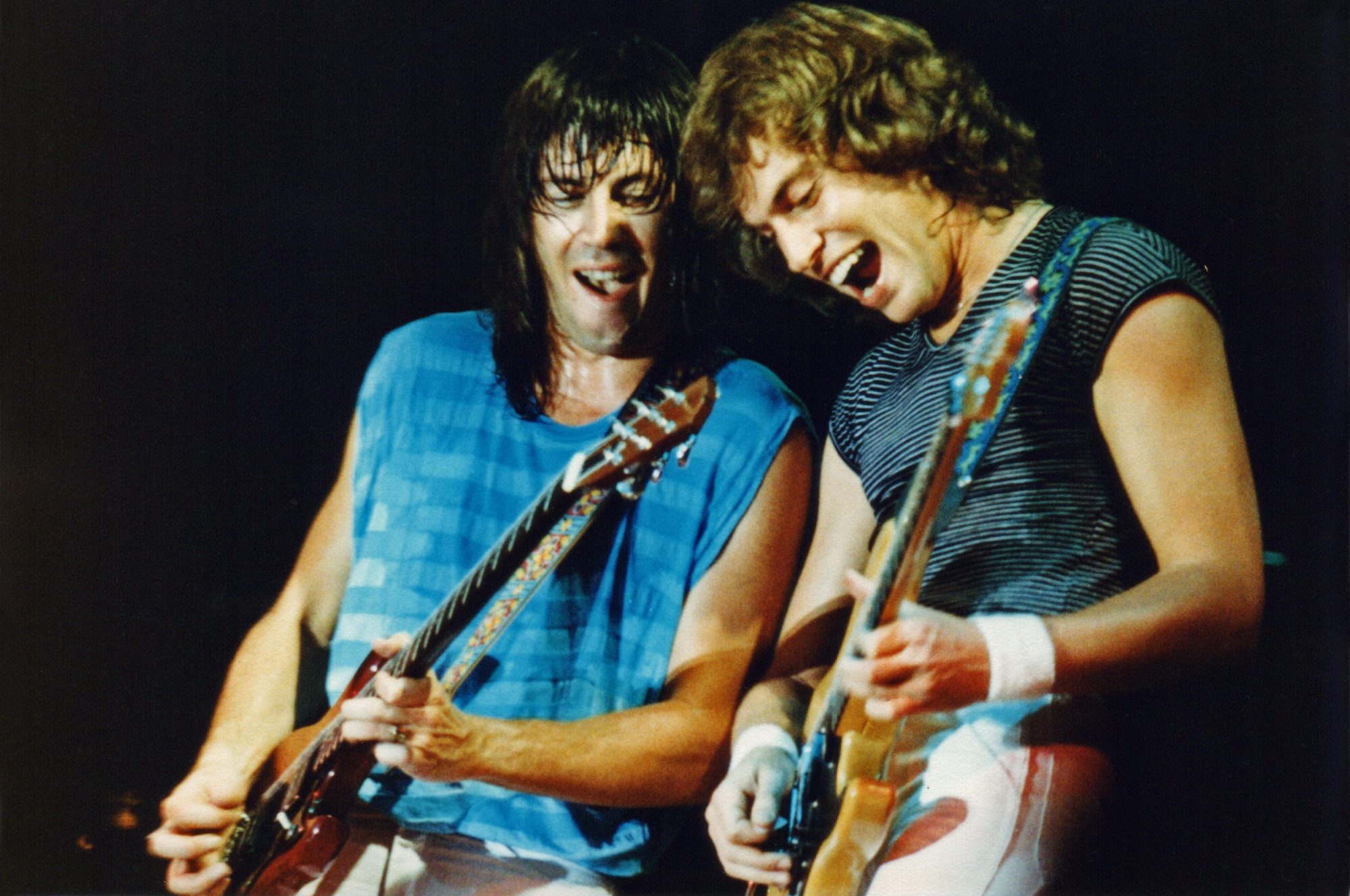
"I'm actually going to squeeze two in here because both Pat Travers and Pat Thrall were huge influences on me. The [Pat Travers Band's] Crash and Burn record was influential on me in terms of starting to figure out what the blues were.
"Now, Travers' albums aren't really blues albums – they're more high-energy rock with some funk and fusion elements – but somehow, the way they played, there were always little elements of blues, too.
"Songs like Boom Boom (Out Go the Lights) and Snortin' Whiskey are based on blues progressions, and as a teenager, I could dig them because they were high-energy and there were some cool, rippin' fast parts. But it was just enough blues to start to train my ears that it was something different than what I was hearing while listening to an Iron Maiden record, for example.
"I didn't have the sophistication to figure out what it was, but it kicked off my curiosity and opened doors to different elements of expression. To me, that was the best I'd heard anybody ever do a boogie-woogie power chord riff – there was something about it that made me want to soak that in. To this day, whatever I'm playing that style, I'm always channeling Travers and Thrall."
7. Alex Lifeson
"Another warbly guitar player, where you know he's using some type of pedal that makes the whole world swim. And you know, with the early Rush stuff, there's depth and a kind of Zeppelin influence that I liked a lot.
"To me, when somebody is influenced by somebody that I like, I don't care – I will never criticize anybody. You won't find me saying, 'Oh, you sound too much like this great person.' I'm more like, 'Bring it on. I love it.' I can take in as many Jimi Hendrix clones as you can throw at me. I can have a million versions of that, and I'm totally happy because that's the right person to clone [Laughs].
With the early Rush stuff, when people say, 'Oh, it's too much like Zeppelin,' I'm like, 'Um, no problem.' Because I'll take as many Led Zeppelins as the world can handle – I feel like the more, the better
"So, with the early Rush stuff, when people say, 'Oh, it's too much like Zeppelin,' I'm like, 'Um, no problem.' Because I'll take as many Led Zeppelins as the world can handle – I feel like the more, the better. But, of course, as Rush progressed and Neil Peart joined, they began to find their own thing.
"So, Rush was really my introduction to prog-rock: odd time signatures, long songs, and having to really memorize a lot of stuff to be able to play along with it. But it was a fun challenge to try and play these complicated songs that required more than a couple of lessons to understand.
"I used to play a lot of that stuff in the bands I was in, which meant it was a total pedalboard-building process. It was like, 'Okay, I want to play Red Barchetta, I need to have my delay set at a certain setting,' or whatever.
"I got very into all the pedal stuff to try to copy what Alex was doing. He was a very interesting guitar player who did a lot of stuff that I would never have thought of beyond the scope of the Jimmy Page stuff I was into. So, he exposed me to elements I didn't know about in very creative ways."
8. Yngwie Malmsteen
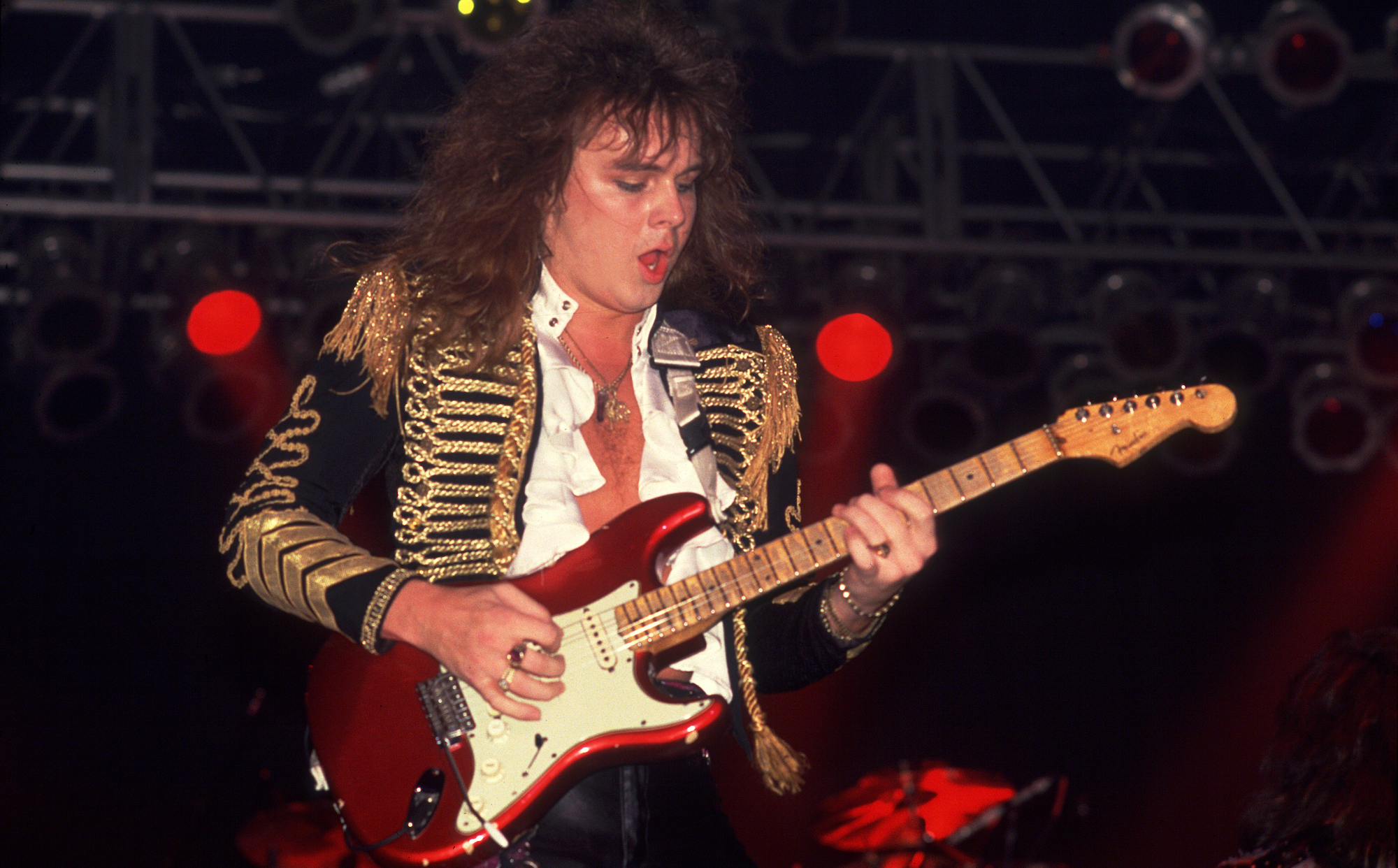
"The first time I heard Yngwie, it was over the phone. Mike Varney, who was the producer and owner of Shrapnel Records, had been sent some tapes and then got connected with him. Mike used to do this thing where he'd call you up and go, 'Yeah, I got into tape – it sounds pretty good,' and he'd go from there.
"He was sent all this stuff that would knock your socks off, so when he showed me Yngwie, and I heard him over the phone, he was doing this fast-picking thing, and I thought he was shockingly good. At that point, I was maybe 16 or 17 years old and had given up on fast picking. I had tried it, but I didn't like the way it sounded when I did it. I just couldn't get the tone, and it tangled up whatever else I was doing.
"So, I thought, 'Well, I'll let other people do that. That's not my style,' which I think was a good decision. I'll tell that to my students, meaning, if it's not working, put it on a shelf. It's not good to beat yourself up about some technique that's not working at the moment – you'll get to it later. But when I heard Yngwie, it was like, 'Okay, well, if he can do that, maybe it's worth another try, just to know that it's possible.'
"That was the first time I ever sat down with a metronome and thought, 'Okay, here we go – let me put some time into this.' And after a week or two, I could do it. And I thought, 'Well, maybe there's hope after all.' So, Yngwie got me to give that another shot, and then I started to have some success."
9. Robin Trower
"Here we have another warbly guitar player with that Uni-Vibe pedal or whatever he's got. Robin Trower is a player that, whenever I listen to him, I almost think that I should stop playing guitar because he is doing everything that I want to do and has done it really well. I just think, 'Well, he's done it already. Why do you need me?' But maybe the good news is that because it's me, I will never quite be able to do it that way.
"Regardless of if I like it or not, I'm always gonna sound like me... but I sure do wish I could sound like Robin Trower because I just love the way he plays. I love how he creates a structure that allows him to play the way he plays. I think he's at his best when the band is quiet and sort of down dynamically.
"Those moments seem to give Robin all this space, and he just fills it up. He's able to take that space and does such emotional things with it as a total master of vibrato, phrasing, connection, and feedback.
"He's sort of like Hendrix but a little bit more refined. Again, he's a guy who has been accused of sounding too much like Jimi Hendrix, and maybe Robin Trower is sort of my second-generation Hendrix because it's a similar thing. But he does have his own thing – I can tell if it's Robin or if it's Hendrix.
"Robin is straight to the point where I think Jimi did a lot of successful searching, which is great, but I think Robin is kind of a little more focused. I think that happens with each generation – you discard the fluff and narrow things down a bit more."
10. B.B. King
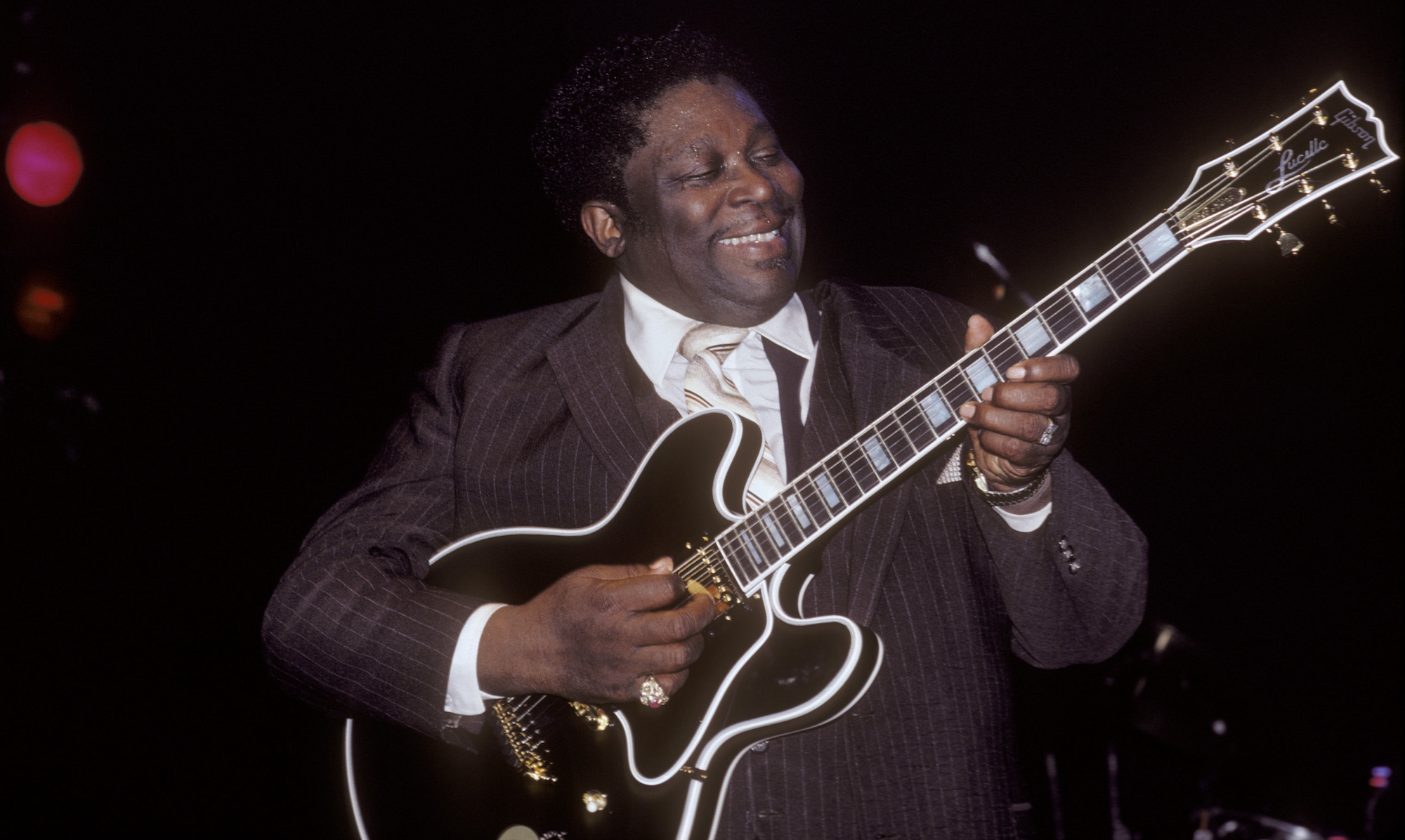
"B.B. King is somebody that I listened to when I was a kid because my dad had the records, which planted the seed. But it was much later, really, only like 10 years ago, that I realized that the thing that B.B. does where he's got his hand shaking like crazy, and he's got the one finger on the sixth string, he's got an absolute mastery of controlling it.
"I was never able to do that – I had to use like three fingers, put them together, and have like a giant finger to have the power to be able to do that. But one finger? I couldn't do that, I wasn't strong enough. I don't know how B.B. was able to do that, but I wanted to try, and one day, I just thought, 'Okay, enough of this, I'm gonna try. I'm gonna really put some effort in and try to get that B.B. thing down.'
B.B. was a much later influence in terms of his effect on me, but it was a big effect. That totally revolutionized my playing
"I've always loved it but could never do it, so I needed to try. Well, it took me about six weeks to get anywhere close, and the reason it took that long was that it required that I have a callus on my finger in a different place from where it normally was.
"So, my skin had to get used to it, but every day it got a little easier and a little better. And when I finally got that callus and started to get what I'll call a 'B.B. band,' it revolutionized my vibrato. Suddenly, I could do all these things that I could never do before.
"From a technical standpoint, that was huge, so I started playing along with him a lot because he's got some great videos on YouTube where he's playing slow blues and leaving a lot of space. B.B. used to play a riff and leave some space, and that's where I'd come in and jam with B.B., and from doing that, I immediately realized, 'Oh, I'm playing too much,' or, 'I'm too busy – that's not the right style.'
"It allowed me to focus and inform my blues, playing in my ear for what I should aim for. I started listening to his records a lot more not that long ago, so B.B. was a much later influence in terms of his effect on me, but it was a big effect. That totally revolutionized my playing."
11. Tony Iommi
"I have to include Tony here as I've just done this Dio record. Doing this record made me realize that the guitar players Dio played with – like Tony Iommi, Vivian Campbell, and Ritchie Blackmore – I love all of them. But Tony was the one that I could figure out when I was 12.
"His parts were simple enough, as a 12-year-old guitar player, [that] I could learn some things by ear. I realized that [with] songs like Sweet Leaf, with the lick toward the end – I played it over and over for like a year.
"It got to the point where I played it so much, and it got easy for me, so I started to do variations on my own. From there, my doing that led me to evolve and start doing more complicated stuff that I can do now. It was some early versions of crazy lead tricks, but at the core of it, it was Tony playing Sweet Leaf.
"So, I really think that Tony's living in my hands, where he's in the engine room, so to speak. He's what's creating the power that everything else is being driven by."
12. Jimi Hendrix

"I had a lot of Hendrix records when I was a kid because my uncle insisted that I listen to them. And I liked them but didn't get it 100 percent until I saw the Jimi Hendrix movie. My mom took me to the midnight movies when I was around eight, and I saw Jimi play at the Monterey Pop Festival then and there.
"Of course, I had already heard that because I heard the record of recordings from Monterey Pop, but when I saw Jimi actually doing it, the hair on my arms stood straight up. I was like, 'Man, I get it. I emotionally understand this now.' Seeing him play just moved me, which I think is hard to understand in the modern era.
That's one of the biggest scourges of modern players – they're always thinking, 'Okay, I gotta be very careful. I have to be very precise and do everything perfectly.' That's nice, but it can suck the life out of the music
"If you've heard Van Halen, and if you've heard Yngwie, you've listened to modern players who are polished. But with Jimi, there's a lot of rough edges, so going in, it's like, 'Ah, that's too sloppy,' or it's, 'Oh, no, this sounds like a mistake.' But the tradeoff is that you get this energy, and there are emotions that are soaring through the air.
"Of course, within the historical context, how Jimi sounded at that time – compared to the other players – was just devastating. A lot of it has to do with having the guitar become a voice because he was making a single note be sustained through distortion, feedback and volume. But again, nobody was doing that at the time.
"So, he's the first guy holding a note, as a singer would. Before that, players playing like a singer would be like the Ventures, or surf rock guys, which was cool and charming, but Jimi had this whole other level of vibrato. He had this wild abandon, and I love how he played without being careful.
"To me, that's one of the biggest scourges of modern players – they're always thinking, 'Okay, I gotta be very careful. I have to be very precise and do everything perfectly.' That's nice, but it can suck the life out of the music. So, Jimi was not careful and not perfect, but it was in service of maximum life, maximum emotion and maximum connection."
- The Dio Album is out now via Music Theories Recordings/Mascot Label Group.
Andrew Daly is an iced-coffee-addicted, oddball Telecaster-playing, alfredo pasta-loving journalist from Long Island, NY, who, in addition to being a contributing writer for Guitar World, scribes for Bass Player, Guitar Player, Guitarist, and MusicRadar. Andrew has interviewed favorites like Ace Frehley, Johnny Marr, Vito Bratta, Bruce Kulick, Joe Perry, Brad Whitford, Tom Morello, Rich Robinson, and Paul Stanley, while his all-time favorite (rhythm player), Keith Richards, continues to elude him.




